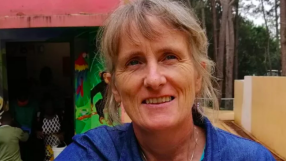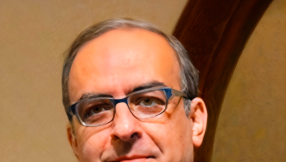
Pro-life groups have reacted with concern to the publication of a report by the Nuffield Trust looking at the delivery of assisted suicide where it is already legal.
Earlier this year the House of Commons voted to legalise medically assisted suicide. The proposed law will be debated by the House of Lords in September.
The Nuffield report looked at 15 jurisdictions in which the practice is already legal to draw conclusions about the implications of it being legalised in the UK.
It says that implementing assisting suicide across the NHS would be a "substantial task" and "would place added pressure on NHS, hospice and social care capacity".
"In countries where assisted dying is legal, policymakers often underestimate the extra capacity needed in the health and care system to get the service up and running and the ongoing funding needed to deliver it," the report says.
The report found that assisted suicide can place emotional burdens on carers like "guilt" and "stigma", and that in some jurisdictions "eligibility criteria expand over time".
Across the 15 jurisdictions, the report found that "a relatively small number of clinicians are involved in a high proportion of assisted deaths".
Weighing up the implementation of assisted suicide in the UK, Nuffield said that the ethnic diversity of NHS workers "could increase the number of staff with a conscientious objection to assisted dying (opting out of a practice they regard as morally wrong)".
It also concluded that "both individual and institutional attitudes towards assisted dying can change over time through education, experience and relationship building, with some opposition softening as the process becomes more familiar and accepted".
Care Not Killing, a campaign group opposed to assisted suicide, found shortcomings with the report in failing to carry out a bias risk assessment or take non-academic material into consideration.
The organisation noted that the research highlights the heavy emotional cost that health professionals involved in assisted dying routinely experience.
Outlining some of the negative experiences of health professionals, Nuffield reported that in Canada 85.5% of social workers experienced "medium to high emotional charge" after participating in an assisted suicide, while 62.4% required "processing breaks".
Both the Care Not Killing alliance and Christian advocacy group CARE noted that the Nuffield report showed that legalising assisted suicide would increase pressures on the NHS.
Caroline Ansell, Director of Advocacy at CARE, said, “This report highlights the trends that have been obvious for years, namely that if you legalise assisted suicide, the numbers increase over time and the criteria is always expanded to include more and more people.
“So not only is assisted suicide highly expensive from the start, but the costs will only increase as the whole idea becomes normalised. Meanwhile, where will this leave palliative care which is already cripplingly underfunded?”
Dr Gordon Macdonald, CEO of Care Not Killing, commented, “We agree with the report that in all the jurisdictions that have legalised assisted suicide or euthanasia, over time there is pressure to erode safeguards and widen eligibility criteria.
“It is time that Parliament ditched the dangerous and controversial bill and instead turn their attention to fixing the UK’s broken palliative and social care systems that are failing many vulnerable, elderly and disabled people.”
Andrea Williams, Chief Executive of Christian Concern, added her voice to the concerns being raised, saying that the legalisation of assisted suicide "involves changing the very foundation of the NHS so that the NHS is not just focused on treating illnesses, but also on helping patients to end their lives".
"This change undermines the very basis of medicine and the reason that people choose to work in clinical fields of medicine and medical care. It constitutes a massive cultural and moral change to our society which will have a huge impact on the NHS in general," she said.
“We have argued that this bill will be very difficult to implement for all sorts of reasons. The Nuffield Report now provides solid evidence from other jurisdictions of the multiple problems faced by countries that decide to facilitate assisted suicide.
“The NHS is already stretched to the limit and struggling to provide the heavy demand on its services. Legalising assisted suicide will only add to these pressures by requiring the NHS to determine the eligibility of patients who request it and by forcing the NHS to assist in the suicide of those who qualify."













